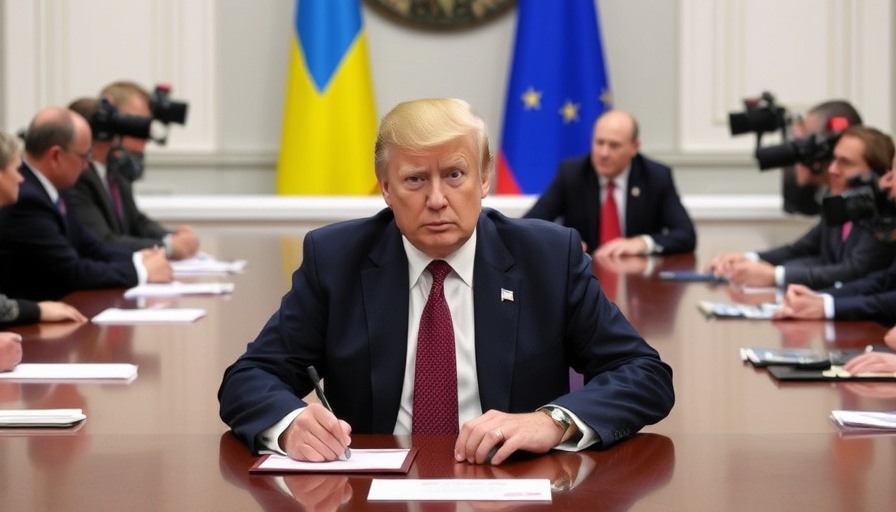
The Latest Developments in the Ukraine Conflict
The ongoing war in Ukraine reached a new level of intensity recently, with the Kremlin responding to comments made by former US President Donald Trump. During a speech, Trump described Russian President Vladimir Putin as having 'gone absolutely CRAZY!' The Kremlin, however, attributed these comments to what they termed 'emotional overload' amidst the heated backdrop of war. Dmitry Peskov, spokesperson for the Kremlin, expressed gratitude towards Trump for his involvement in peace talks, despite the criticism from Ukrainian President Volodymyr Zelenskyy, who called for more robust actions from the West.
Escalating Military Actions
This incident comes after Russia launched its largest drone attack on Ukraine yet, deploying an astonishing 355 drones along with cruise missiles, resulting in tragic casualties. This action marks the third consecutive night of heavy bombardments, raising concerns about an ongoing escalation in hostilities that have persisted for over three years.
Western Support for Ukraine on the Rise
In a notable shift, Germany and other Western nations will now remove previously imposed range restrictions on weapons supplied to Ukraine. This decision aims to enhance Ukraine's ability to defend itself more effectively against the Russian offensive. Friedrich Merz highlighted this new policy development, emphasizing that none of the allied nations will impose limitations on the range of weaponry sent to Ukraine.
Putin’s Threats to Western Ideals
In response to the geopolitical shifts, Putin threatened to 'throttle' Western firms operating in Russia. His remarks point to a growing isolationist trend that seeks to curb the influence of US technology companies in Russian markets. As such sentiments gain traction within Russia, this could signal a new era of economic and technological conflict.
Understanding the Broader Implications
The interplay of rhetoric and military actions in this conflict illustrates the complex dynamics at play. Domestic political strategies are intertwined with international relations, as each party seeks to maximize leverage. Zelenskyy's call for increased sanctions on Russia echoes the sentiments of many that a firmer stand is required to deter further aggression.
Analyzing Emotional Rhetoric in Politics
Trump's comments are a reflection of the heightened emotional sentiment surrounding the conflict. In times of such intense strife, language can serve as both a weapon and a tool for peace. The Kremlin's downplaying of Trump's statement reveals their awareness that emotional rhetoric can be manipulated to serve political ends. A careful analysis of this dynamic reveals the delicate balance of messaging and military strategy as both sides navigate an unpredictable landscape.
The Role of Media in Shaping Narratives
As events unfold, media representation of the situation plays a critical role in shaping public perceptions. The dynamic between Trump’s remarks and the Kremlin’s response has sparked discussions not only in political circles but also within media platforms. Coverage that emphasizes emotional reactions may help draw public engagement but also risks oversimplifying complex geopolitical issues.
In summary, as the conflict in Ukraine continues to escalate, the interplay between military strategy, political rhetoric, and international relations will be pivotal in determining the future course of events. It's essential for the global community to remain informed and engaged with these developments.
The situation in Ukraine reflects not only immediate geopolitical implications but also broader trends in international relations that might challenge traditional alliances and provoke new conflicts. Understanding this context is crucial for anyone following these developments closely.
 Add Row
Add Row  Add
Add 




 Add Row
Add Row  Add
Add 

Write A Comment